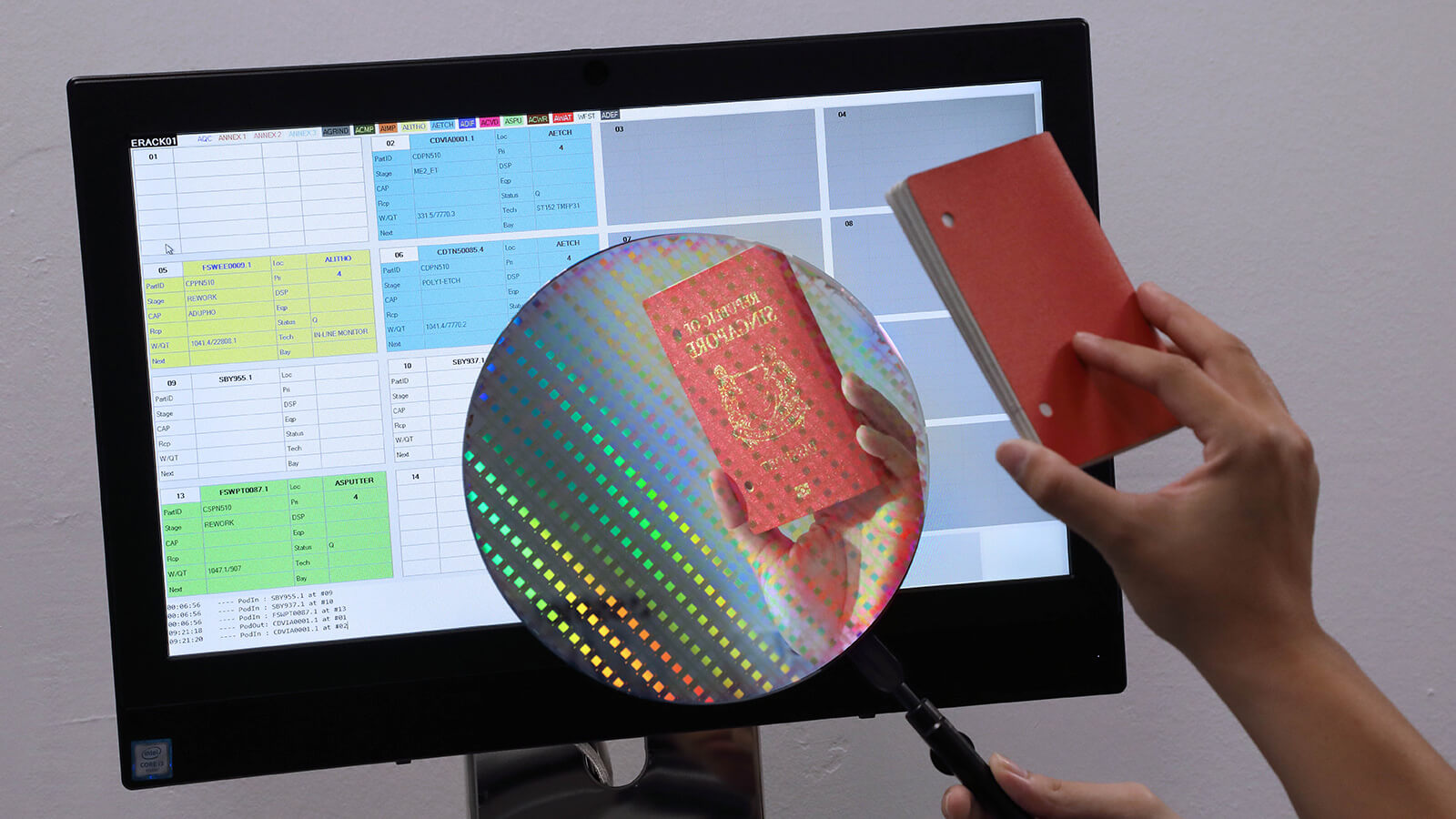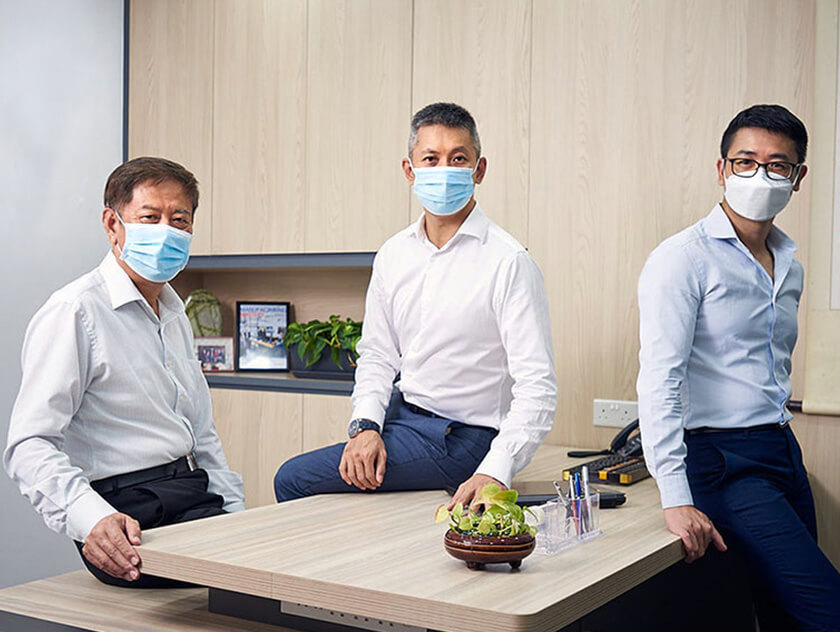Mr Ivan Hee holds a Singapore passport under a lamp, revealing the outline of a smart chip embedded on the biometric page. This chip stores biometric information needed to verify a person’s identity.
That tiny piece of silicon is manufactured right here in Singapore, within the smart factory of Systems on Silicon Manufacturing Company (SSMC).
Mr Hee, SSMC’s Vice President of Business Operations and Human Resource, describes how smart chips have transformed the way we travel.
Recall the last time you visited Changi Airport for a flight. At the customs area, you would have inserted the biometric page of your passport into a reader, waited until the barriers parted and entered when instructed by the monitor.
This scene might be over within seconds. But behind this convenient experience is a series of invisible digital security checks.
The moment when you insert your passport into the reader, SSMC’s Radio Frequency Identification (RFID) chip communicates information to a computer which will automatically retrieve data secured by an encrypted algorithm. As part of the decoding process, more than 100 interlocking software codes have to be verified.

“In other words, it’s a very secure authentication process that renders the information extra safe,” adds Mr Hee.
The company looks beyond just software considerations. “Imagine putting your passport in the pocket and sitting down. The chip within may crack.”
To prevent this, SSMC manufactures its smart chips to be high in tensile strength, which means it is resistant to breaking under tension.
SSMC’s production process is highly automated and guided by the three “A”s, says Mr Hee. They are namely Auto-loader, Auto-conveyor and Auto-transporter – machines that load and transport materials from one part of the factory to another.
All the processing data that SSMC collects is fed to the machines so that they become more efficient in their tasks.
Beyond passports, SSMC’s RFID smart chips are also installed in wafer pods used for manufacturing. Other chip applications include virtual reality headsets, autonomous cars and even smart drones.
There are different design considerations depending on the end application, explains Mr Hee. “In the area of smart e-passport, what you need most is security. Hence, robust data security is of utmost importance.”
“But in the area of automotive technologies, the focus is reliability because we are talking about lives – both the drivers’ and the pedestrians’.”
As a company that invested in Industry 4.0 technologies, SSMC keeps abreast of the latest technological trends, such as facial recognition technology in the area of e-passports.
Since 2017, the United States has been experimenting with this form of technology in a few airports while Changi Airport’s Terminal 4 already uses facial recognition technology for self-service check-in options. In the future, people’s faces, as some media reports have suggested, could very well be used as passports.
The semiconductor industry, evidently, is constantly evolving. He is so passionate and believes that “Semiconductor technology is the bedrock of human advancement.” This is what keeps Mr Hee going, even after three decades.
So, the next time you pay a visit to Changi Airport, you know that you hold a smart chip in your passport that keeps your data safe while opening gateways to the world.


